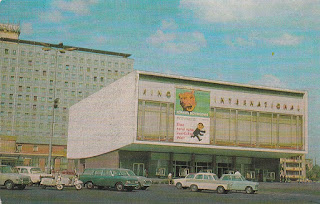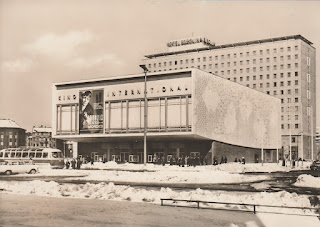This is already my 25th postcard showing Kino International in Berlin (counted according to the poster motif). The postcard is extra large (21,4 cm x 10,3 cm) and was sold with an envelope. It was made by Graphokopie H. Sander K.G. Berlin and was published by Berlin Werbung Berolina.
The poster on the cinema building advertises the film Die Perle / The Pearl / La perla - a 1947 Mexican-American film directed by Emilio Fernández. It is based on the 1947 novella The Pearl by John Steinbeck, who also co-wrote the screenplay.
The film came to East German cinemas on May 26, 1964. It was shown already August 12, 1950 in the West German cinemas with the titel Mexikanische Romanze - but only 77 min of total 85 min.
In 2002, the film was selected for preservation in the United States National Film Registry by the Library of Congress as being "culturally, historically, or aesthetically significant".
The poster was designed by Horst Klöpfel.
























